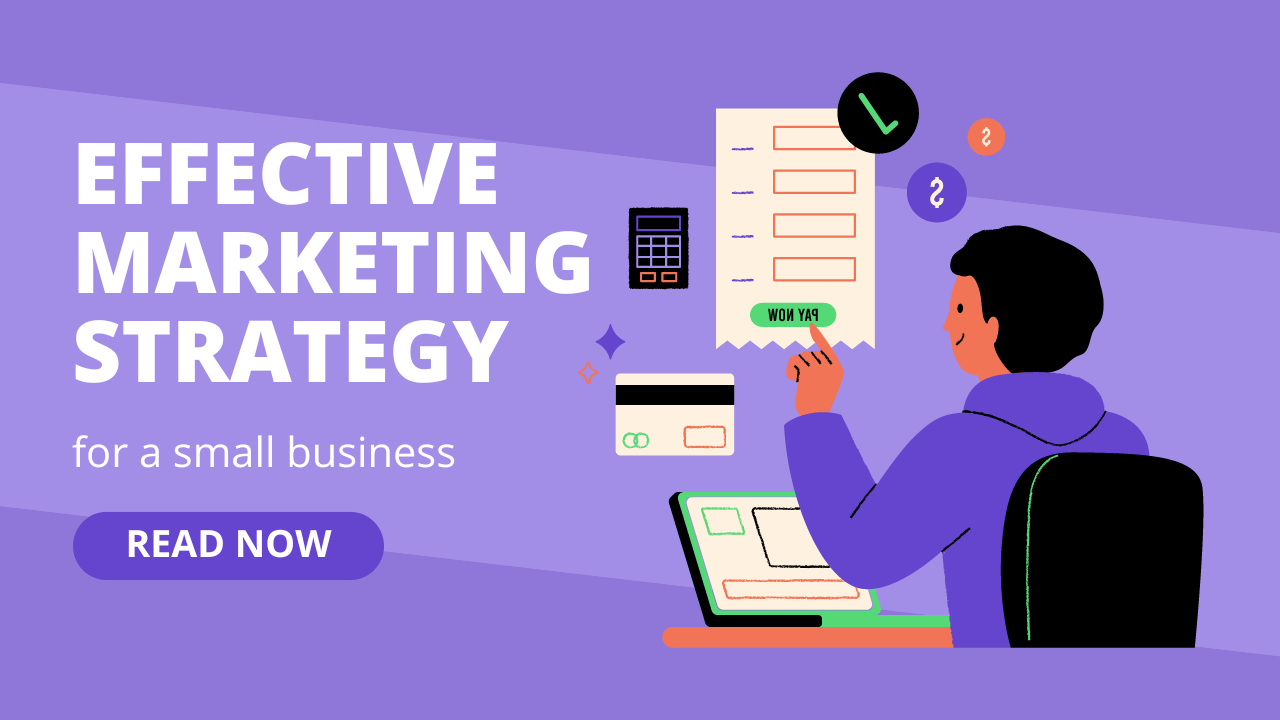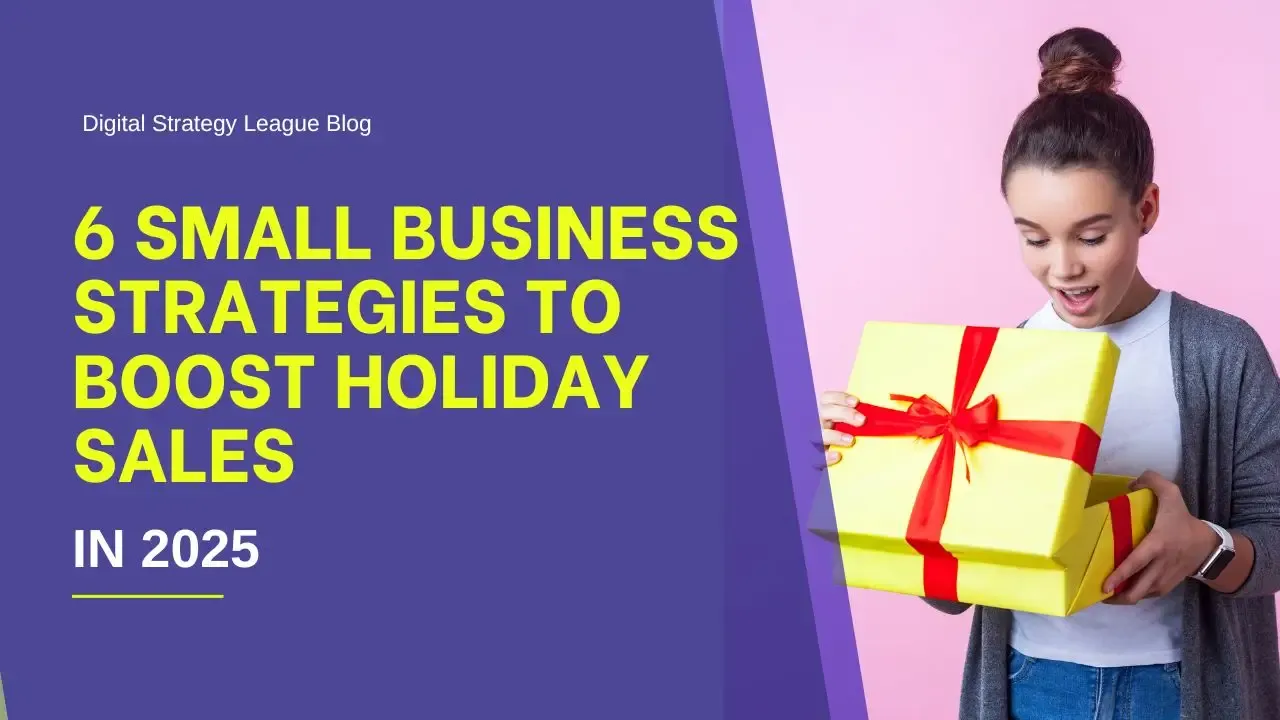Effective Marketing Strategy for Your Small Business
marketing plan marketing strategy marketing tactics marketing techniques small business
Starting a business is an exciting adventure, but it can also be challenging, especially when it comes to attracting leads and making sales. You might have tried posting on social media or even created a website, but still, the traffic and sales are just not coming in. Don't worry; you're not alone! Many small business owners face these hurdles. Today, I'll help you understand how to create an effective marketing plan tailored specifically for small businesses like yours. Let's dive into some practical marketing tactics and strategies to help you grow your business!
Understanding the Nuances of Small Business Marketing
Marketing for a small business isn't the same as marketing for a large corporation or a social media influencer. When social media marketers tell you to post several times a day, get 10K followers, or create viral reels, they're focusing on the wrong metrics for your business. As a small business owner, you don't need a massive following or a picture-perfect Instagram feed. Instead, you need to focus on attracting your ideal clients, building trust with them, and converting them into happy customers. I call this method the ABCs of marketing: Attract, Build Trust, and Convert.

Attract: Finding Your Ideal Clients
Attracting the right audience is the first step. It's not about getting more followers; it's about getting the right followers. Your ideal clients are the people who are most likely to benefit from your products or services. Here's how you can attract them:
-
Identify Your Ideal Client: Think about who would benefit the most from what you offer. Consider their age, interests, location, and pain points.
-
Create Valuable Content: Share content that addresses your ideal clients' problems and offers solutions. This could be blog posts, social media updates, videos, or infographics. Make sure your content is easy to understand and helpful.
-
Leverage Social Media: Choose the right platforms where your ideal clients hang out. You don't need to be on every social media site; just focus on the ones that matter most to your audience.
Build Trust: Developing Relationships with Your Audience
Once you've attracted your ideal clients, the next step is to build trust. People buy from businesses they trust. Here's how you can develop that trust:
-
Be Consistent: Regularly post content that is relevant and valuable to your audience. Consistency helps you stay top of mind and shows that you are reliable.
-
Engage with Your Audience: Respond to comments, answer questions, and engage in conversations. Show that you care about your audience and their needs.
-
Show Your Expertise: Share your knowledge and expertise through tutorials, how-to guides, and informative posts. When people see that you know what you're talking about, they'll trust you more.
-
Be Authentic: Be yourself and show the human side of your business. People connect with people, not just brands. Share your story, your values, and what makes your business unique.
Convert: Turning Prospects into Happy Customers
Now that you've built trust, it's time to convert your leads into paying customers. Here's how you can do it:
-
Create Compelling Offers: Give your audience a reason to buy from you. This could be a special discount, a limited-time offer, or a valuable bonus.
-
Make It Easy to Buy: Ensure that your purchasing process is straightforward and user-friendly. Remove any obstacles that might prevent your audience from making a purchase.
-
Provide Excellent Customer Service: Treat your customers well and address any issues promptly. A happy customer is more likely to buy from you again and recommend you to others.
The Referral Strategy: Turning Happy Customers into Advocates
A satisfied customer can become your best marketer. Encourage your happy customers to refer your business to others. Here's how:
-
Ask for Referrals: Don't be shy about asking your satisfied customers to refer their friends and family. Most people are happy to help if they've had a good experience.
-
Offer Incentives: Provide incentives for referrals, such as discounts, freebies, or exclusive offers. This can motivate your customers to spread the word about your business.
-
Create a Referral Program: Set up a formal referral program that rewards customers for bringing in new business. Make it easy for them to participate and share.
The Power of Multichannel Marketing
Relying on just one marketing channel is not enough. You need a multichannel approach to build awareness, trust, and ultimately, sales. Here's why and how you should do it:
-
Social Media: Use social media to reach a broader audience and engage with your followers. Share valuable content, run promotions, and interact with your audience.
-
Email Marketing: Email is a powerful tool for nurturing leads and keeping in touch with your customers. Send regular newsletters, offer exclusive deals, and provide valuable information.
-
Website: Your website is your online storefront. Ensure it is user-friendly, informative, and optimized for search engines. Make it easy for visitors to learn about your products and services and make a purchase.
Creating Relevant Content: Speaking Directly to Your Ideal Client
The key to successful marketing is creating content that resonates with your ideal clients. Think of your marketing efforts as a way to build a relationship with them, much like dating. You need to provide relevant information and build trust before they are ready to make a purchase.
According to a recent article by Think with Google, "Confident consumers are more likely to make decisive purchases that improve metrics and the bottom line. For example, consumers who are highly confident at the point of purchase are 18X more likely to recommend the brand to family or friends than those with low confidence." Confidence comes from providing relevant information before the purchase and building a relationship with your audience.
Checking the Health of Your Marketing Strategy
To ensure your marketing efforts are effective, it's essential to regularly assess your strategy. I invite you to take a Free Assessment called the Sales Growth Score Card. This tool will show you opportunities in your marketing and help you attract more leads and increase your revenue.
Conclusion
Marketing for a small business doesn't have to be complicated. By focusing on attracting your ideal clients, building trust, and converting leads into happy customers, you can create a successful marketing plan. Remember the ABCs of marketing: Attract, Build Trust, and Convert. Use a multichannel approach to reach your audience and create relevant content that speaks directly to them. And don't forget to encourage referrals from your satisfied customers.
By following these simple marketing tactics and techniques, you'll be well on your way to growing your small business and achieving your goals. Happy marketing!
Categories
All Categories ai becoming a health coach branding chatgpt content calendar content creation content definition content marketing content meaning content strategy digital marketing digital marketing benefits digital marketing examples empowerement health coach holiday marketing marketing marketing definition marketing meaning marketing plan marketing strategy marketing tactics marketing techniques small business marketing trends mindset motivation quotes seo small business marketing social media social media calendar example social media content calendar tools wellness coach what's digital marketing what's marketing





